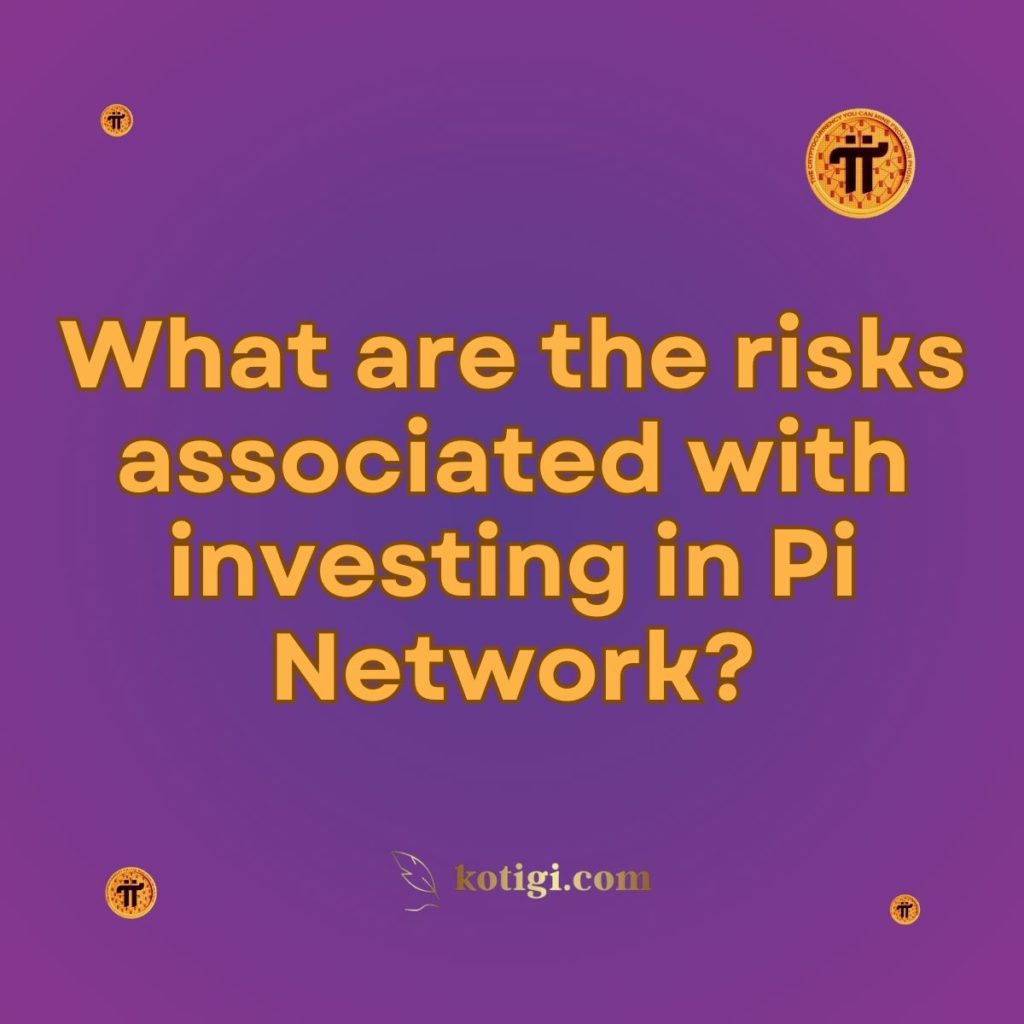
What are the risks associated with investing in Pi Network?
Investing in Pi Network, like any emerging cryptocurrency project, carries certain risks that potential investors should carefully consider. While Pi Network offers the promise of accessible mining and the potential for future value, several key risks are associated with the project. Here’s a breakdown of these risks:
1. Speculative Nature of Pi Network
Lack of Established Value:
Pi Network is still in its development phase, and its coins (Pi) currently have no established market value. Since Pi coins are not yet listed on cryptocurrency exchanges, their future value is uncertain. This makes Pi a speculative asset, and there’s no guarantee that it will ever gain significant value.
Early-Stage Project:
As an early-stage project, Pi Network is still evolving. The success of the network depends on the team’s ability to complete the development roadmap, including the transition to a fully decentralized open mainnet. Any delays or failures in achieving these milestones could negatively impact the project’s potential value.
2. Centralized Control
Current Centralization:
At this stage, Pi Network is not fully decentralized. The core team maintains control over the network’s operations, which introduces centralization risks. While this control allows the team to guide the project’s development, it also means that users are placing a high level of trust in the team’s decisions and capabilities.
Transition to Decentralization:
The planned transition to a decentralized network carries its own risks. Decentralization is a complex process, and achieving it successfully is not guaranteed. If the transition is not smooth, it could lead to technical issues, security vulnerabilities, or a loss of user confidence.
3. Security Risks
Unproven Security:
Pi Network’s security model, including its “security circles,” is designed to enhance trust within the network. However, the network’s security has not yet been tested in an open, decentralized environment. Once Pi coins become tradable on exchanges, the network may face more sophisticated attacks, and its security infrastructure will be put to the test.
User Security Practices:
Individual user security is also a concern. Users must protect their accounts with strong passwords and be cautious about phishing attacks. Since Pi Network relies on user trust, any breach of this trust, whether through hacking or scams, could harm the network’s reputation and value.
4. Regulatory Uncertainty
Regulatory Risks:
Cryptocurrencies operate in a rapidly evolving regulatory landscape. There is always a risk that new regulations could impact Pi Network’s operations or the ability of users to trade Pi coins. Regulatory actions against the project or the broader cryptocurrency industry could affect the network’s future prospects.
Compliance Challenges:
As Pi Network grows and potentially becomes more valuable, it may face increased scrutiny from regulators. Ensuring compliance with various legal requirements across different jurisdictions could be challenging and may impact the network’s operations.
5. Market Competition
Competitive Environment:
Pi Network operates in a highly competitive space, with numerous established cryptocurrencies and new projects emerging regularly. Competing projects with similar goals or better technology could overshadow Pi Network, making it difficult for Pi to achieve widespread adoption and value.
Adoption and Use Cases:
The success of Pi Network depends on its ability to build a robust ecosystem with real-world use cases for Pi coins. If the network fails to attract developers, businesses, and users to build and utilize decentralized applications (dApps) within its ecosystem, it may struggle to achieve long-term viability.
Conclusion
Investing in Pi Network comes with several risks, including its speculative nature, centralized control, potential security vulnerabilities, regulatory uncertainty, and competition in the cryptocurrency market. While Pi Network offers a unique and accessible approach to cryptocurrency mining, its future success is not guaranteed. Investors should carefully weigh these risks and consider their risk tolerance before deciding to invest time or resources into Pi Network. As with any investment, it’s important to stay informed and cautious.
